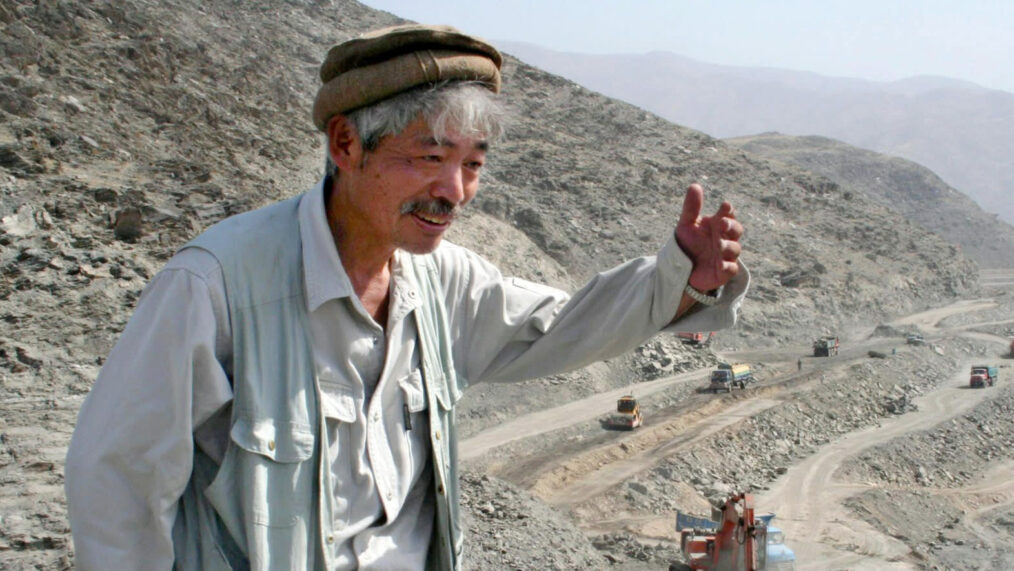
Lessons from Tetsu Nakamura’s Legacy in Afghanistan
Tetsu Nakamura, a Japanese doctor who devoted his career to improving the lives of Afghans, was killed in an attack in eastern Afghanistan.
A biography published by the Ramon Magsaysay Award described how Nakamura was initially drawn to the Afghan-Pakistani border region in pursuit of his interest in entomology and posed the question, “Who would have thought that beetles and butterflies would lead a Japanese doctor to his life’s work?” only for current circumstances to stir new queries. What can we learn from the life of Tetsu Nakamura? How can his example help us find peace in Afghanistan?
Leaders from around the world condemned the attack. President Ashraf Ghani expressed “utmost grief and sorrow” and ordered his security agencies to find the perpetrators. Nakamura’s death is a great loss to Afghans that lived in regions touched by his work. Hamidullah Hashemi, a resident of Khewa, stated, “I feel like they have killed my closest family member. They left us without Nakamura.”
Nakamura opened multiple clinics to provide medical service in Nangarhar Province. He identified malnutrition as a major cause for the health issues in the region. As a result of this, he broadened the scope of his work into agriculture and irrigation, such as his focus on building canals in eastern Afghanistan. Whilst discussing his irrigation projects, Nakamura stated, “A hospital treats patients one by one, but this helps an entire village…I love seeing a village that’s been brought back to life.” His work indeed brought villages back to life. Reuters reports:
“some 16,000 hectares (40,000 acres) of the desert has been brought back to life, making Nakamura such a widely revered figure in Afghanistan that earlier this year he became the first foreigner awarded Afghan citizenship.”
Nakamura’s influence means that communities now face a lesser risk of certain diseases that ravaged the region in comparison to his arrival in 1984. The infrastructure set in place by Nakamura’s projects remains a valuable asset that Afghans will continue to use to tackle malnutrition and other health issues in the region.
His life’s work is a lesson for other stakeholders in Afghanistan. While leaders speculate about the perpetrators and security forces investigate the attack, the importance of Nakamura’s lasting legacy and how it ensures a better standard of living for generations to come must be understood. The New York Times reports:
“The killing (of Nakamura) came on a day the State Department announced its peace envoy, Zalmay Khalilzad, was on the road again after President Trump declared the resumption of talks with the Taliban, which he had called off in September. After meeting Afghan leaders in Kabul, Mr. Khalilzad was set to travel to the Qatari capital, Doha, to resume negotiations with the Taliban.”
It is essential that the United States take Nakamura’s work into account as they continue negotiations with the Taliban and the discussions over troop withdrawal. The United States must leave behind established infrastructure to ensure peaceful and effective governance.
Regional stability currently rests on the very fragile shoulders of US and Afghan security forces, therefore their withdrawal without the provision of necessary support may lead to violent instability. The US must ensure that its longest war ends peacefully.
Rise to Peace polls and interviews reveal that the majority of Afghans support a strong US presence in Afghanistan due to the fragility and controversial history of the Afghan government. However, it is important that Afghans rebuild and take control of their nation. Crucially, the US must continue to support Afghans in capacity building, education as well as the economy, so Afghans remain resilient against any extremist regimes that jeopardize the national security of Afghanistan.
Nakamura’s legacy, especially in Nangarhar, will remain an important reminder to the US and other stakeholders in Afghanistan that the creation of infrastructure allows Afghans to rebuild and achieve peaceful solutions.
